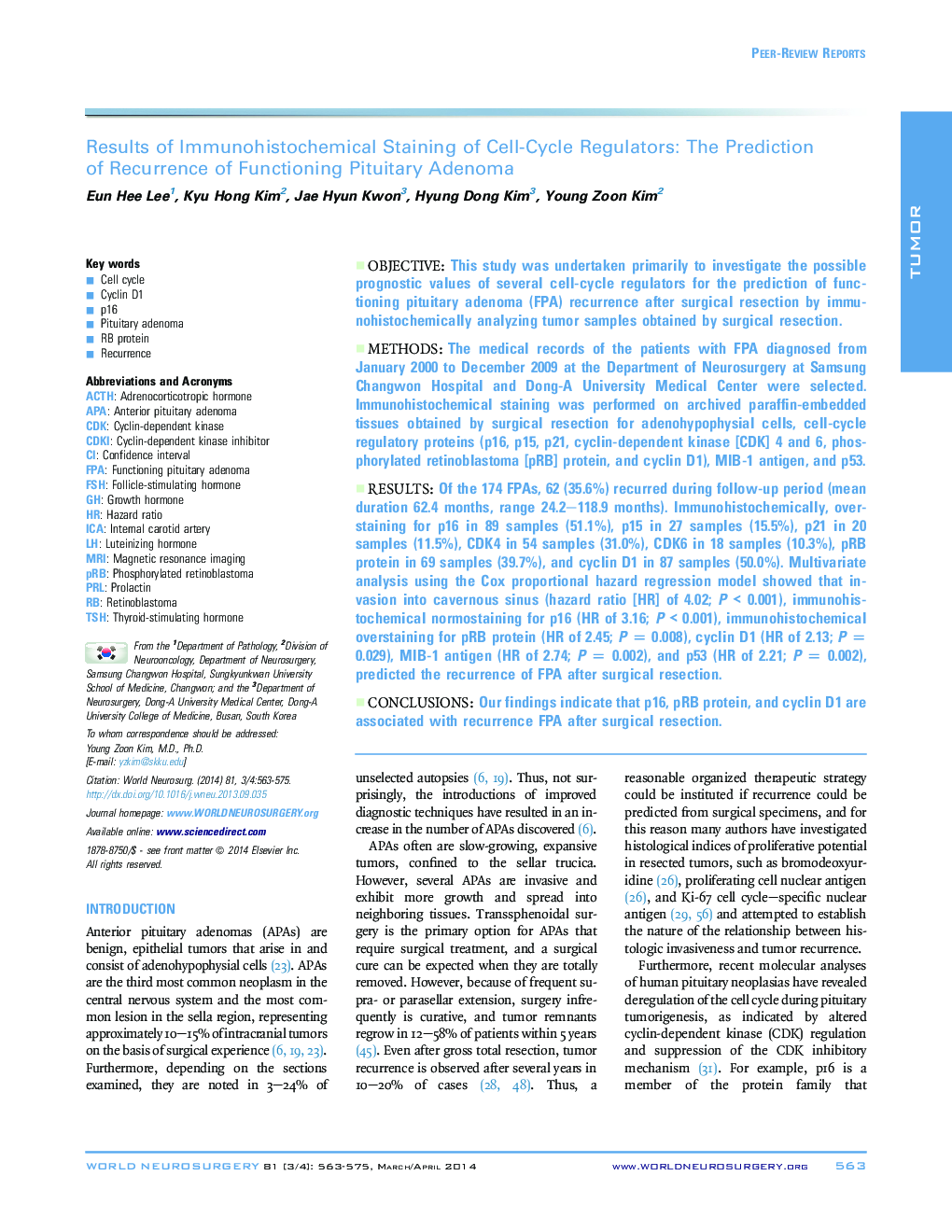| Article ID | Journal | Published Year | Pages | File Type |
|---|---|---|---|---|
| 3095234 | World Neurosurgery | 2014 | 13 Pages |
ObjectiveThis study was undertaken primarily to investigate the possible prognostic values of several cell-cycle regulators for the prediction of functioning pituitary adenoma (FPA) recurrence after surgical resection by immunohistochemically analyzing tumor samples obtained by surgical resection.MethodsThe medical records of the patients with FPA diagnosed from January 2000 to December 2009 at the Department of Neurosurgery at Samsung Changwon Hospital and Dong-A University Medical Center were selected. Immunohistochemical staining was performed on archived paraffin-embedded tissues obtained by surgical resection for adenohypophysial cells, cell-cycle regulatory proteins (p16, p15, p21, cyclin-dependent kinase [CDK] 4 and 6, phosphorylated retinoblastoma [pRB] protein, and cyclin D1), MIB-1 antigen, and p53.ResultsOf the 174 FPAs, 62 (35.6%) recurred during follow-up period (mean duration 62.4 months, range 24.2–118.9 months). Immunohistochemically, overstaining for p16 in 89 samples (51.1%), p15 in 27 samples (15.5%), p21 in 20 samples (11.5%), CDK4 in 54 samples (31.0%), CDK6 in 18 samples (10.3%), pRB protein in 69 samples (39.7%), and cyclin D1 in 87 samples (50.0%). Multivariate analysis using the Cox proportional hazard regression model showed that invasion into cavernous sinus (hazard ratio [HR] of 4.02; P < 0.001), immunohistochemical normostaining for p16 (HR of 3.16; P < 0.001), immunohistochemical overstaining for pRB protein (HR of 2.45; P = 0.008), cyclin D1 (HR of 2.13; P = 0.029), MIB-1 antigen (HR of 2.74; P = 0.002), and p53 (HR of 2.21; P = 0.002), predicted the recurrence of FPA after surgical resection.ConclusionsOur findings indicate that p16, pRB protein, and cyclin D1 are associated with recurrence FPA after surgical resection.
